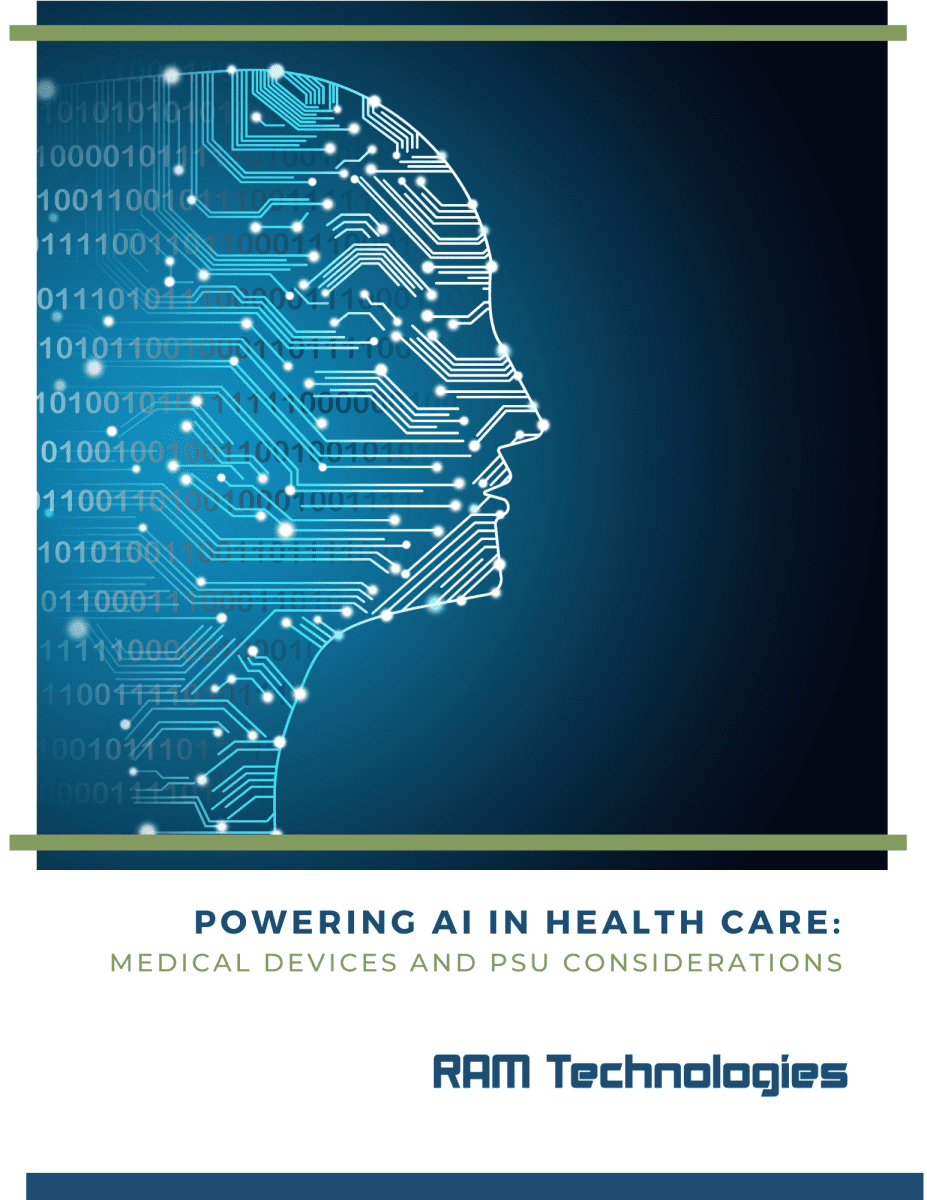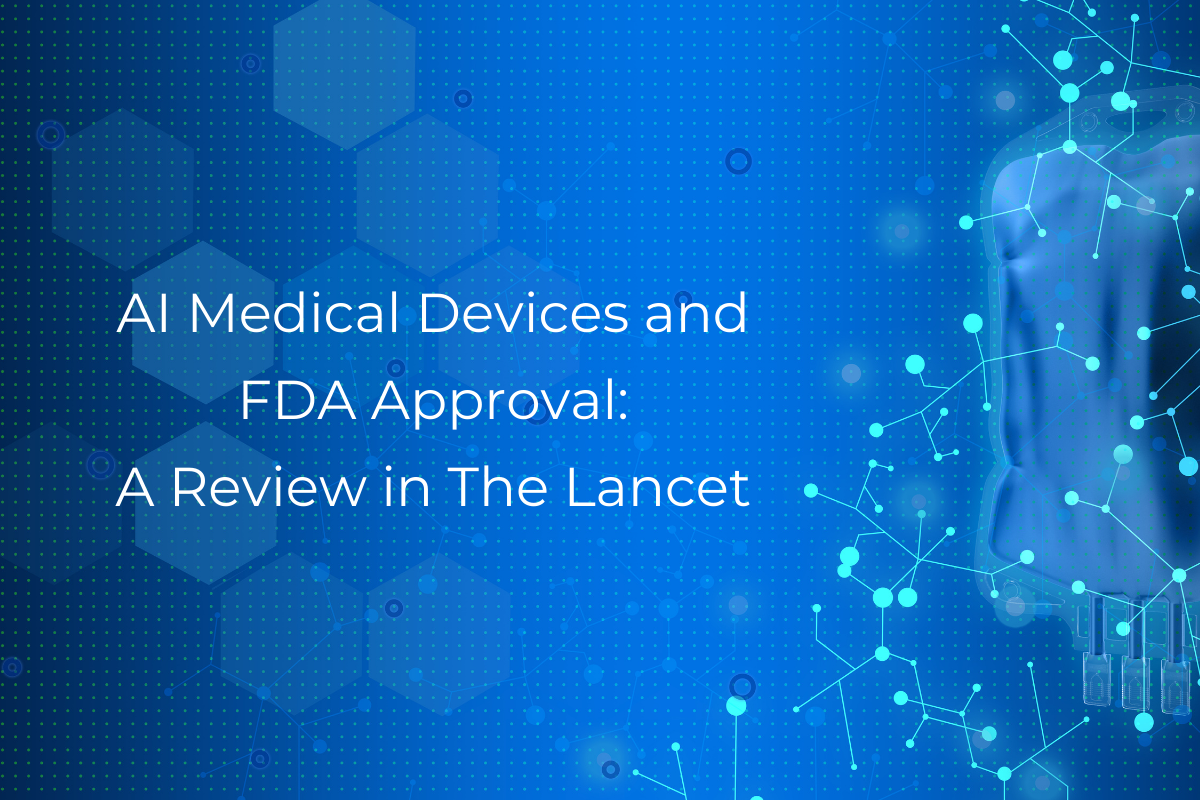Artificial intelligence and machine learning (AI/ML) technologies are revolutionizing many industries, healthcare included. These bourgeoning tools can personalize treatments, improve the accuracy and efficiency of diagnoses, and empower patients to take control of their health. Medical devices that offer features such as real-time imaging and remote monitoring can improve the healthcare experience for all parties. However, the regulatory waters are still relatively murky. What might medical device manufacturers expect to see in the coming years as AI/ML implementation becomes more commonplace?
Clearing AI/ML Medical Devices
When seeking approval through the Food and Drug Administration (FDA), medical device manufacturers will have to use one of three pathways: de novo, premarket notification 510(k) pathway, or premarket approval. Pathways will depend on the class and risk levels associated with the medical device, as well as what’s already on the market. With the 510(k) pathway, predicate devices that are already on the market can be used to clear new devices. However, in the case of AI/ML medical devices, this form of clearance may make for less accurate comparisons.
A September 2023 article published by The Lancet and written by researchers at the University of Zurich wanted to assess predicate networks that ultimately cleared AI/ML-based medical devices to determine whether the clearance was adequate for the end devices. They specifically looked at the number of generations and length of time that passed before either a de novo or non-AI/ML device was reached when looking back in the approvals.
When observing predicate tasks and recalls for medical devices cleared from 2019 to 2021, the study found that over one-third of analyzed cleared AI/ML devices were based on previously-approved non-AI/ML devices. Some of these device types had a big gap between the approval of the AI/ML equipment and the original predicate devices, especially radiology (2001), hematology (2001), and cardiovascular equipment (2008). One of the concerns the researchers had was around frequent changes to AI/ML tasks, especially with radiology devices, and that the “distinctive characteristics of AI/ML” aren’t being focused on enough to determine “substantial equivalence” between these new devices and their predicates.
Risks With AI/ML Device Clearance
Devices that are cleared through the 510(k) pathway but then make iterative changes so that their device is no longer substantially like the predicate. This is called predicate creep, and the concern by the researchers is that this can present a safety risk to patients on the receiving end of these devices.
Another risk could exist with the unclear definition of AI, as also outlined by the report. The FDA’s accepted definition describes AI as “the science and engineering of making intelligent machines.” New AI research is mostly about applying machine learning methods, which is what The Lancet evaluated in their analysis of AI/ML devices.
A third risk that could be present in AI/ML devices comes from technology-specific recalls. However, in the Lancet study, researchers only found a couple devices containing software that had been recalled.
The Future of AI/ML Medical Device Clearance
While the FDA started to place a greater focus on the importance of new policies that allowed to be cleared, there is not currently a specific pathway designated for AI/ML devices. Instead, the organization suggests that manufacturers abide by good machine learning practices. Most recently, 171 devices were added to the FDA’s list of cleared artificial intelligence and machine learning (AI/ML)-enabled devices.
The FDA also has the Breakthrough Devices Program and Safer Technologies Program. These programs are designed to expedite the approval process for devices that improve, to a significant degree, the safety of diagnostics or treatments currently on the market for conditions tied to specific illnesses and conditions that are considered life-threatening, debilitating, or otherwise serious. The Safer Technologies Program, debuted in 2021, is meant for conditions that are less serious compared to the Breakthrough Devices program, but still those that can benefit from greater urgency.
Suggestions for AI Medical Devices From The Lancet
So, what does The Lancet study suggest? To serve as a counterpart to the benefits that can be gained from AI/ML-enabled medical devices, there also needs to be an increased focus by the FDA on what is distinct about AI medical devices and their tasks.
The researchers want to see the classification description of de novo devices written up in a way that only applies to the “specific intended use” to help avoid predicate creep.
If new and predicate devices have similar AI/ML technology, the researchers believe that they can be considered substantially equivalent in their technological characteristics. Otherwise, they should not be in an interest of safety.
Lastly, AI/ML components should not be introduced using reference devices to try to approve new medical devices because of the potential large differences between the two.
Wherever AI medical devices go in the future, and what paths they’ll need to take for approval, they’ll need the right power supplies to keep them running. RAM Technologies offers high-powered medical-grade power supply units (PSUs) that can handle graphics and compute-intensive workloads. Learn more about our power supplies and contact us with questions today!
RAM Technologies’ power supplies are 60601-1 3.2 certified and meet 60601-1-2 EMC standards. When you’re designing your medical device and need help with a PSU, contact us for details.

Download the AI/ML Summary
Artificial Intelligence and Machine Learning (AI/ML) are changing the medical device landscape. Get a summary of the latest trends and where we think AI/ML can go with medical devices by downloading our guide.
More Resources:
Powering AI in Health Care: Real-Time Medical Imaging and PSUs
Downloadable Guide to IEC 60601-1
Current Trends in the Medical Device Industry
U.S. Medical Device Market Size – Should You Seek FDA Approval?



